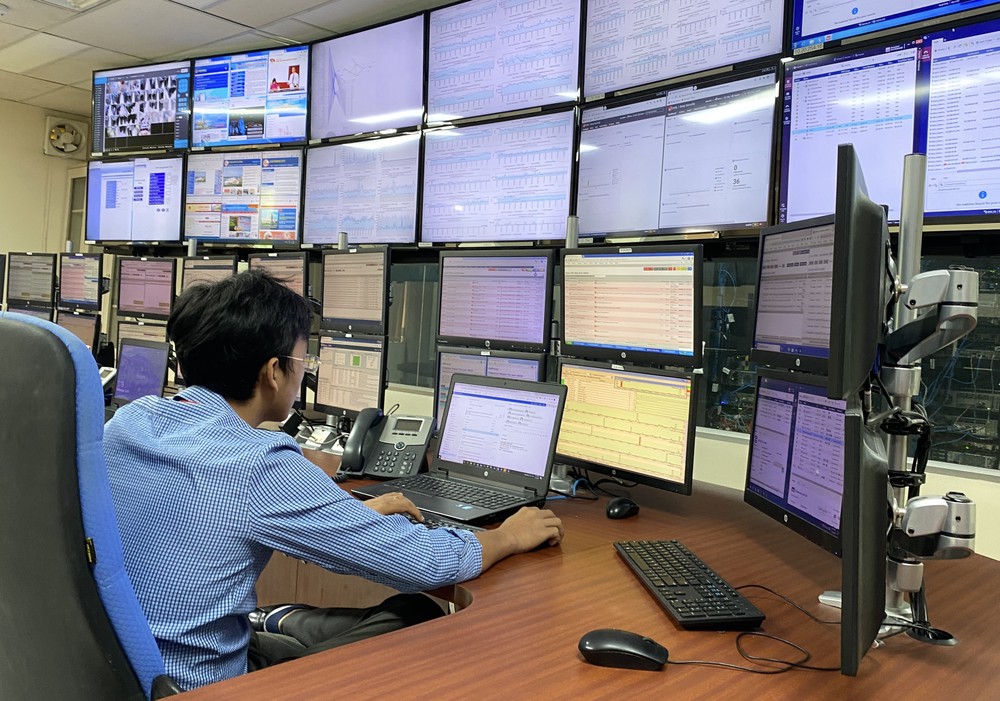
Each locality is speeding up digital transformation with unique strategies and approaches.
Each locality has its various approaches to accelerate digital technologies
The Central City of Da Nang determines digital transformation to change state management, social management and production-business methods, combined with digital technology applications to create new services and new values. From August 2023, Da Nang will put into operation the Smart City Operations Monitoring Center (IOC) and District Operations Centers (OC); thereby, the city has produced 140 types of statistical data, visual charts and 50 types of early warnings and forecasts.
Mr. Tran Ngoc Thach, Deputy Director of the Department of Information and Communications of Da Nang, said that all administrative procedures in the city are eligible to be provided a total of 1,797 online public services, accounting for 93.54 percent of the total administrative procedures.
In respect of digital transformation, Ho Chi Minh City with its digital data strategy has reaped many remarkably fruitful results. The City Department of Information and Communications has coordinated with departments, agencies and localities to operate a data-sharing platform and city digital map service. At the same time, it has connected and shared notary data and cadastral database to improve the effectiveness and efficiency of management and prevention of violations of land law and real estate business.
So far, Ho Chi Minh City has completed an information system for handling centralized city administrative procedures, issuing 600 online public services, and this system has configured 617/740 online public services.
The capital city of Hanoi has been assigned by the Government to implement a typical digital transformation district model and digital transformation associated with the building of a smart Hanoi City by 2025, with an orientation to 2030 including 55 targets and 201 tasks.
The Hanoi Department of Information and Communications has encouraged districts and towns to boldly propose and launch local digital transformation pilot models, said Mr. Nguyen Viet Hung, Director of the Hanoi Department of Information and Communications.
Acceleration of digital transformation for a better life
With the digital data strategy, Ho Chi Minh City is increasingly accelerating and developing digital transformation in three pillars including digital government, digital economy and digital society.
Director of Ho Chi Minh City Department of Information and Communications Lam Dinh Thang announced that the southern metropolis sets a digital data goal by 2025 in several areas. For instance, all land management information systems, construction licensing, and planning will be systematically formed to maintain, update, and exploit data to serve urban management and development. City dwellers' electronic health record data, security data, and data on the establishment and operation of enterprises and individual business households will be complete.
Meanwhile, Hanoi City determined that digital transformation is closely linked to smart city development.
Chairman of Hanoi People's Committee Tran Sy Thanh revealed that the capital city aims for a sustainable smart city model that will bring a truly quality, convenient, safe, and friendly living environment for its inhabitants in addition to building a government to serve the development of organizations and businesses. After a time of accelerating digital transformation, localities have reaped initially fruitful results.
According to Minister of Information and Communications Nguyen Manh Hung, the country is ready to carry out the key task of the program - the socio-economic development.
Minister Nguyen Manh Hung emphasized that the country will apply artificial intelligence and virtual assistants more in 2024 when online public services must be complete and must be done remotely, from people's homes. In fact, at least 70 percent of people will use online public services, according to the Minister.
























